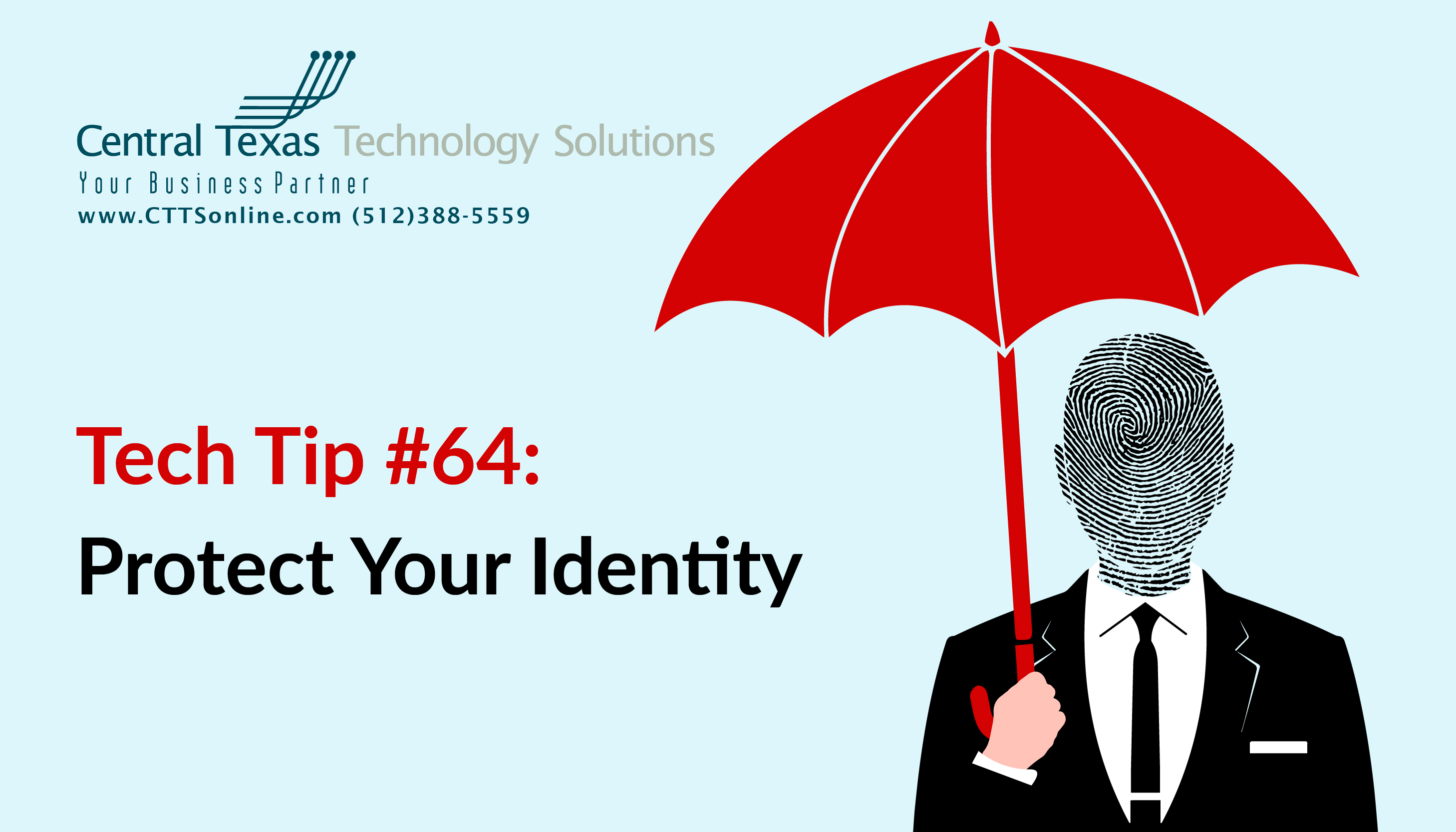 What's Your Identity Theft Prevention Strategy?
What's Your Identity Theft Prevention Strategy?
It's that time of year again, time to scramble to get your taxes in order for Uncle Sam. Tax season can also bring out the scammers and cyber criminals in full force to take advantage of our flustered feelings of stress, confusion, and financial pain. It may be difficult to spot the difference between a fake phishing scam and an amazing tax refund, so we've put together for you the Top 5 Identity Protection Tips:
1. Practice Password Security
One of the easiest ways to increase security at the end user level is to have robust password policies in place. Using complicated passwords sounds daunting at first, but in practice it just means using a combination of upper- and lower-case letters, numbers, and special characters. Avoid using the same password for everything, try to keep our passwords updated and rotating roughly every 90 days (this is the accepted industry standard), and avoid using commonly guess personal item (family names, pet names, birthdates, etc). Do you feel overwhelmed by the number of passwords you have to remember? I suggest using a good free or low cost password manager to document all your passwords safely such as:
LastPass
KeePass
SplashID
1Password
All you have to remember is one password to have access to all your passwords and the manager keeps your passwords offline where they are safe and secure. Above all, create strong passwords and update them frequently.
2. Use Two-Factor Authentication
Having a strong, unique password might not be enough if hackers trick you into giving it away or steal it from your email provider or bank.
That’s why for your most sensitive accounts—think your email or banking accounts—you should set up two-factor authentication (or 2FA). This simply means adding a second step to log into your accounts. First, the password. And, second: either a code sent to your cellphone via text message, or created by a special app on your phone.
With two-factor, even if the hackers steal your passwords, they still won’t be able to get in.
3. Be Aware of Potential Phishing Scams
Phishing is a malicious attempt to extract personal information (name, passwords, account numbers, social security numbers, etc.) from you in which the scammer attempts to masquerade as a well-known or trusted business or organization. Phishing attempts can come in many forms. The most common variation is e-mail, but phone calls and text messages can often be used as initial contact and probe attempts. Remember that most of the organizations you deal with already know who you are. Any electronic communication asking for personal identification information should be viewed with suspicion. If there is ever any doubt or suspicion concerning the validity of an email, call, or text received from a company, call and ask about it. The company in question will be able to easily confirm or deny the validity of the communication.
4. Keep Track of Every Purchase
It is a good idea to check your account transactions often to make sure you authorized each of them. By signing up for transaction monitoring alerts with your bank or credit union, you can immediately be notified when your credit or debit cards have been used. With transaction alerts, consumers can immediately dispute charges they didn't make. If you do become a victim of identity theft, you’ll want to act quickly and report fraudulent transactions as soon as possible. Time is of the essence, so keep a close eye on your accounts all through tax season.
5. Sign Up for Dark Web Monitoring
The dark web is 90% larger than the web we work on and use on a daily basis. Data-wise, that’s 500 times bigger! All over the world, people are using the dark web to sell and buy drugs and counterfeit items, exchange stock market information, commit terrorism, fraud, and sell or buy stolen credentials. When the companies like JP Morgan, Target, and Home Depot were breached, that customer information, went directly to the dark web and was sold.
Is your personal or company data on the Dark Web and you don’t even know it? What if every one of your employees email address and password was exposed making it easy to steal company data? For a limited time we are offering a FREE and SECURE dark web analysis. Call us today at (512) 388-5559 and we'll go into the dark web to keep you out of it.
Learn if your information is exposed on the dark web, whether you’ve been part of any data breaches, and how to ensure you’re safe online with our Free Dark Web Analysis or give us a call now at (512) 288-5559.

By Josh Wilmoth
CEO, Central Texas Technology Solutions
